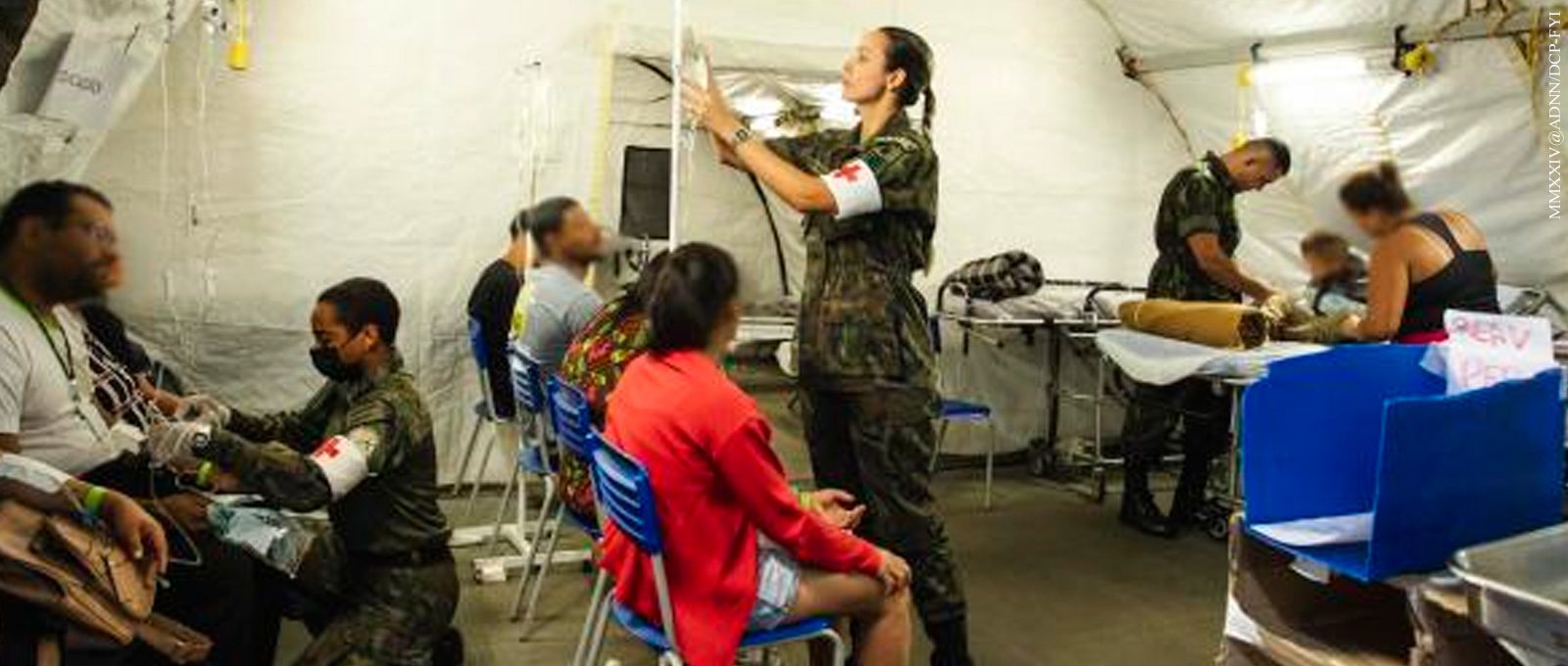With activation and assembly in record time, the structure serves the population of the federal capital due to the increase in dengue cases in the region
Air Force Agency, by Lieutenant Gabrielle Varela
The Field Hospital (HCAMP) of the Brazilian Air Force (FAB), located in the Federal District, reached the milestone of more than 40,000 procedures performed on patients suspected or diagnosed with dengue fever in 45 days.
According to the Commander of the Field Hospital, Medical Major Christiane Scardino Evangelista de Loureiro, the dedication and effort of the staff to fulfill the mission was the difference when faced with the intense flow of care. “The FAB’s health service personnel are unique and the greatest incentive during missions is the chance to welcome and care for patients and to know that we make a difference to their lives. This milestone of 40,000 visits is historic for HCAMP and being part of it is very gratifying for our military personnel,” he said.
The Health Unit, which has been in operation since February 5, plays a crucial role in medical assistance, offering quality care 24 hours a day and helping to contain the emergency situation in the federal capital. Service expectations have been exceeded by approximately 160%, according to initial data. Once again, the FAB demonstrated its capacity for readiness; rapid response, from the call to setting up the structure, and efficient care in Ceilândia, the administrative region of the Federal District, which receives the health services offered by HCAMP. The action reflects the commitment of the Air Force and its military personnel to supporting society wherever Brazil needs them.
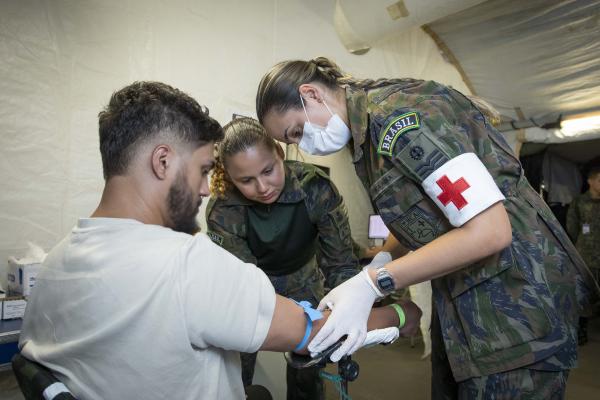
Procedures
The Field Hospital provides clinical and pediatric care, with an emergency center, a laboratory for collection and diagnostic tests, a structure for monitoring ongoing treatments and a space for hydration. The unit also has a multidisciplinary team, including doctors, nurses, nursing and laboratory technicians, among others, and has 60 beds that guarantee 24-hour operation.
The partnership between the Air Force and the local health authorities was fundamental to the effectiveness of the operations and the achievement of significant goals in the fight against dengue. The Commander of the Operation, Brigadier General Maurício Ribeiro Braga, highlighted the importance of the FAB’s work in alleviating the situation of dengue cases in the locality.
“The 40,000 procedures are proof of excellent work over these initial 45 days. So it is with great satisfaction that we are managing to contribute to tackling this dengue epidemic in the Federal District. Always with our smile, with our welcome, serving everyone with quality and resolution,” said the General Officer.
Mobilization
Mobilization to set up the structure began on February 3, with the transport of supplies and personnel from Rio de Janeiro (RJ) to Brasília (DF) using the FAB’s KC-390 Millennium aircraft.
FAB surpasses 2,000 organs transported for transplantation
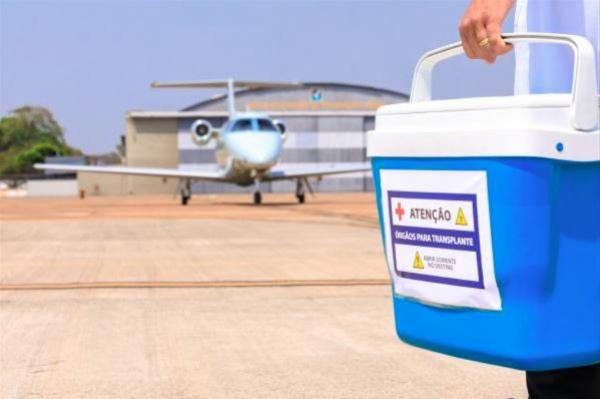
The Brazilian Air Force (FAB) plays a crucial role in the organ donation chain in Brazil, contributing significantly to saving lives and offering hope to patients on the transplant waiting list. The FAB ensures that organs are transported safely and quickly to the designated hospitals, significantly reducing waiting times and increasing the chances of successful transplants.
According to the Aerospace Operations Command (COMAE), which is responsible for planning missions involving FAB aircraft, 130 organs were transported between June and December 2023 alone. This year, on March 17, the FAB surpassed 2,000 organs transported in 1,787 missions carried out between 2016 and 2024. Liver and heart are the most transported organs.
The Sixth Air Transport Squadron (6º ETA) – Guará Squadron, located in Brasília (DF) transported two kidneys and a liver, reaching the milestone of 2,000 organs transported. The Fleet is currently the largest in the FAB to carry out this type of mission and has four operational aircraft: C-95 Bandeirante, C-97 Brasília, C-98 Caravan and U-100 Phenom.
The Commander of the 6th ETA, Lieutenant Colonel Daniel Rodrigues Oliveira, highlighted the Fleet’s readiness. “We are extremely proud to have completed the 2000th organ transport carried out by the Brazilian Air Force, conducted by an aircraft from the Sixth Fleet. This achievement is testimony to the tireless commitment and exemplary dedication of our team. It is an honor for us to play such a crucial role in missions that save lives and strengthen our nation,” he said.

Example
At the age of two, young Alicia Alves Silva received a new, healthy heart transported by the Air Force. “Today I see the FAB as an institution that is directly part of my family, people I had the privilege of meeting later and thanking personally for everything they did for us. A memorable role, of extreme greatness. We are very grateful that the FAB carried Alicia’s heart with such care,” said Giselly Alves, the young woman’s mother.
Chain of command
The Transport of Organs, Tissues and Teams (TOTEQ) mission begins when the National Transplant Center (CNT) is informed by a State Center of the existence of an organ or tissue in clinical condition for transplantation. The CNT calls the airlines to check logistical availability. If there is a compatible flight, commercial airplanes receive the organ and take it to its destination.
When there is no logistical availability from the airlines, the Center turns to the FAB, one or more aircraft for the collection and transportation of material or teams. The FAB’s rapid response is fundamental to the success of the sensitive mission of transporting organs and tissues. The safety and speed of the aircraft, combined with the professionalism of the specialized teams, allow the institution to ensure that organs are transported efficiently to designated hospitals, significantly increasing the chances of successful transplants.
Requests reach the Air Force through a structure set up at the Aerospace Operations Command (COMAE) in Brasília (DF). From there, it is assessed which unit will be called in to carry out the transportation.
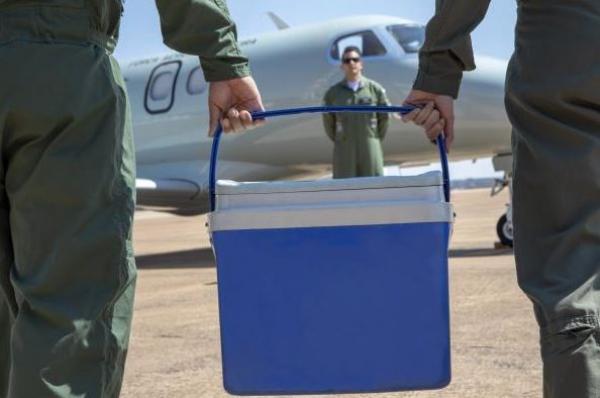
Legal apparatus
Decree 9.175/17 deals with organs, tissues, cells and parts of the human body for the purposes of transportation and treatment. According to the legal provision, the FAB must keep an aircraft available at all times to carry out missions of this nature, in order to meet the demands of the Ministry of Health (MS).
In addition, the National Transplant System (SNT) relies on the support of the Air Force to transport medical collection teams, which can mobilize in less than two hours, to pick up the organ and take it to the recipient at any time and anywhere in Brazil.
The Air Navigation Management Center (CGNA), an organization of the Airspace Control Department (DECEA), is responsible for coordinating the distribution of organs for transplantation in Brazil by air transport.
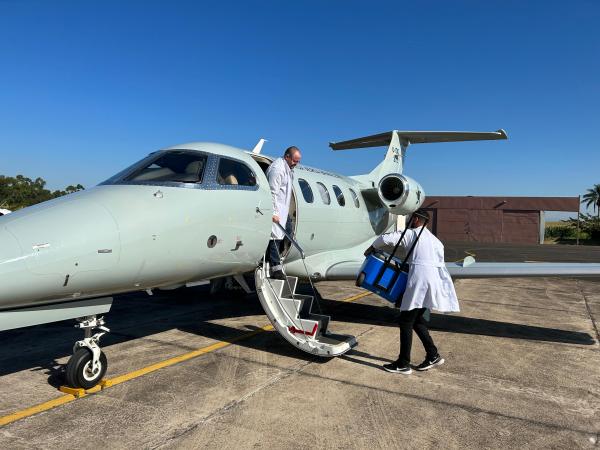
Photos: Petty Officer Johnson and Personal Archive, Sergeant Müller Marin / CECOMSAER *** Translated by DEFCONPress FYI Team ***
